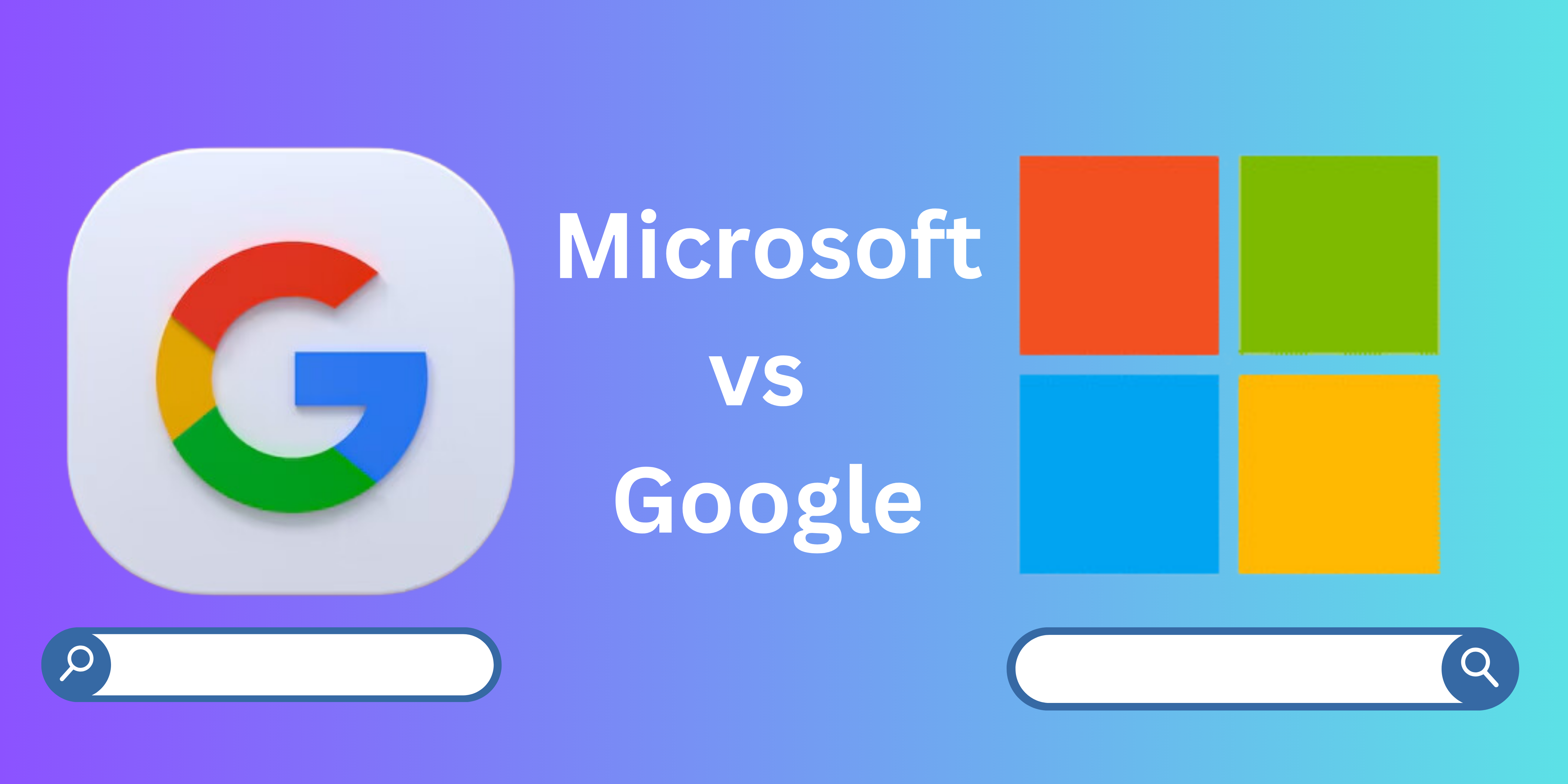Table of Contents
The Search Engine War Heats Up
We use Search engines daily to find information, from homework help to the latest news. Microsoft’s Bing and Google are two of the biggest names in the search engine world. Recently, Microsoft has been working hard to make Bing more popular, even using methods that some people say are a bit sneaky. As the giant in the field, Google has responded strongly to these tactics.
In this blog, we’ll dive into what’s happening between Bing and Google, how search engines work, and why companies compete so fiercely for your attention.
What’s Happening with Microsoft and Bing?

Microsoft is trying to make Bing more popular by copying some of Google’s features. This includes mimicking how Google displays search results and advertisements. Microsoft hopes that by making Bing look and work more like Google, people will use it more often.
Microsoft’s Tactics:
- Google-Like Search Results:
Microsoft has adjusted Bing’s layout to look similar to Google’s, so users might feel like they’re getting a familiar experience. - Promoting Bing Aggressively:
Microsoft has been integrating Bing deeply into its products, such as Windows and the Edge browser, encouraging users to keep Bing as their default search engine. - Advertisements in Search Results:
Bing has increased the number of ads displayed, making it clear that they are also focused on revenue generation, much like Google.
How Did Google Respond?
Google has noticed these changes and responded by pointing out that Bing’s methods might confuse users. Google prides itself on delivering fast, reliable, and accurate search results. It has emphasized that while competition is healthy, companies should be transparent and not mislead users.
Why Do Companies Fight Over Search Engines?
Search engines are not just about helping people find information—they’re big business. Here’s why companies like Microsoft and Google compete so hard for users:
1. Advertisements Mean Big Money
When you search for something online, the results often include ads. Companies pay search engines to show their ads at the top of the page. The more people use a search engine, the more money it can make from ads.
2. Data Collection
Search engines collect data about what people search for. This data helps improve their services and create better-targeted ads. For companies, having this data means staying ahead in the tech game.
3. Building Ecosystems
Search engines are part of larger ecosystems. For example, Google connects its search engine to tools like Gmail, Google Maps, and YouTube. Microsoft does the same with Bing, linking it to its products like Outlook and Teams. The more people use one service, the more likely they are to use others in the same ecosystem.
How Do Search Engines Work?
Search engines use complex systems to provide answers to your questions. Here’s a simple breakdown of how they work:
1. Crawling
Search engines use programs called crawlers to scan websites across the internet and gather information.
2. Indexing
The gathered information is organized and stored in a giant database called an index.
3. Ranking
When you type a question, the search engine ranks the most relevant results based on keywords, quality, and popularity.
4. Displaying Results
Finally, the search engine shows you the most helpful answers, often mixing in advertisements.
Why Do Some People Prefer Google Over Bing?
Google has been around longer and is known for its accuracy and speed. Here’s why it’s the go-to choice for many:
- Better Search Results: Google’s algorithms are highly advanced, often delivering the best answers first.
- Minimal Ads: While Google has ads, they’re usually well-labeled and don’t clutter the page.
- Wide Ecosystem: Services like Google Docs, Maps, and YouTube make Google a one-stop shop for many users.
On the other hand, Bing offers unique features like image and video search enhancements, but it still struggles to win over users who are loyal to Google.
What Might Happen Next?
The competition between Microsoft and Google will likely continue to grow. Here are some possibilities for the future of search engines:
1. Smarter Search Tools
Both companies will work to make their search engines smarter, offering answers that are more personalized and accurate.
2. More Ads
As search engines try to make more money, we might see more advertisements in search results.
3. Improved User Experience
To attract users, search engines will focus on making their platforms easier and more enjoyable to use.
4. New Competitors
Other tech companies might develop their own search engines, adding more variety to the market.
Conclusion: The Race to Be the Best
The battle between Microsoft’s Bing and Google shows how important search engines are in our daily lives and the tech industry. While Microsoft tries to make Bing more appealing, Google remains a strong leader. Both companies are pushing each other to improve, which could benefit users in the long run.
As these search engines evolve, one thing is clear: the competition will keep driving innovation, making it easier for all of us to find the information we need.





































